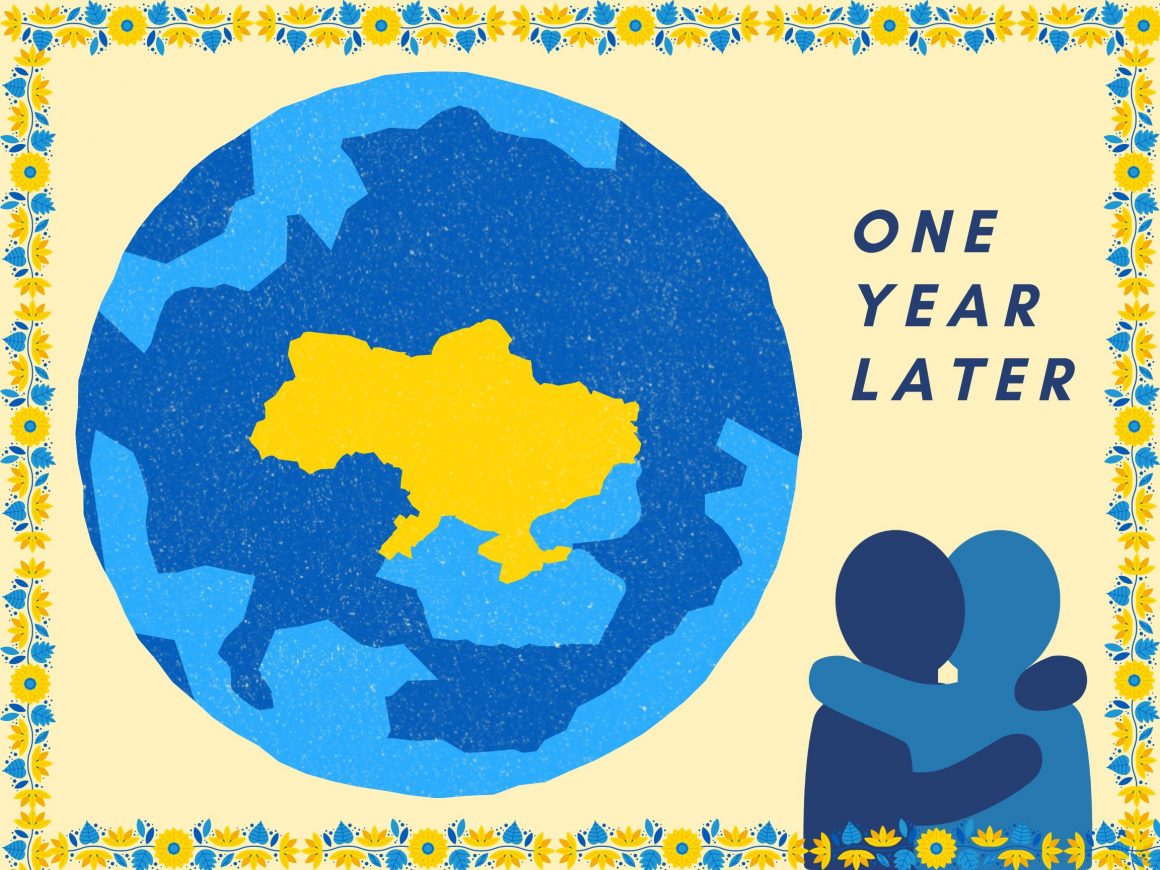
A year later: The costs of the war against Ukraine
By Logan Jaspers, February 20 2023—
The evening of Feb. 23 will mark a year since Russia escalated its war against Ukraine from a low-level “frozen conflict,” typical of the countries constituting the former Soviet Union, into a catastrophic, full-blown invasion. Much of the coverage has focused on the war’s military and political developments, like battles, arms shipments and lines on the map. This coverage is invaluable, but should not come at the expense of considering what has been lost in the war.
Ukrainian military casualties have been pegged at around 100,000, whereas civilian casualties this year are commonly estimated to be between 20,000 to 40,000. However, some Ukrainian sources have stated that the number of civilian deaths in the now-destroyed city of Mariupol alone was a staggering 87,000. Likewise, sexual violence, particularly against women and children, has been widespread and deliberately utilized by Russia as a weapon of war.
The United Nations (UN) Refugee Agency estimates that around 14,000,000 Ukrainians are refugees abroad or are internally displaced, more than a third of Ukraine’s pre-war population of 41,000,000. This figure includes hundreds of thousands of Ukrainians deported to Russia, and the thousands of Ukrainian children kidnapped and adopted into Russian families — an act of forced assimilation that may amount to genocide.
Admittedly, rattling off these statistics is somewhat premature. Until the final gunshots over Ukraine ring, it’s unlikely that a comprehensive review of the costs and casualties can be conducted. However, current estimates are, if anything, understating the extent of the destruction, so the lessons from quantifying all this are undoubtedly pertinent.
As intense fighting still occurs today, it is important that the war doesn’t become background noise. Ukrainians today are still fighting, still dying, still being forced from their homes and are still victims of unimaginable horrors. Regular people must not get “bored” of the war, lest politicians here in the West lose the appetite to keep supporting Ukraine, especially when renewed Russian assaults seem imminent.
Likewise, when the war ends, life in Ukraine will not simply return to normal. Beyond the thousands of deaths, rapes and destroyed families — wounds that cannot be healed by throwing money at them — Ukraine will need hundreds of billions of dollars for recovery. Earnest support for Ukraine means that this support will extend into the inevitable post-war recovery process.
Most critically, as tragic as the war is, simply regarding Russia’s war against Ukraine as a tragedy misses the key aspect of Russian aggression. A hurricane slamming into the eastern seaboard is a tragedy, out of control of anyone’s hands. The war against Ukraine is tragic, but it is also a crime that can stop at any moment. Russian political and military leadership, along with the multitude of soldiers that have committed atrocities, ought to be held accountable and face prosecution as war criminals. Their disregard for human life and Ukrainian dignity should not go unpunished.
This article is a part of our Opinions section and does not necessarily reflect the views of the Gauntlet editorial board.
